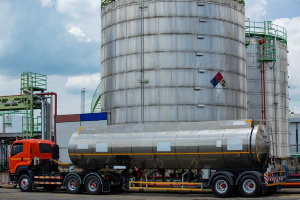
Oil derivation
Diesel
Product | Diesel |
|---|---|
Packaging | Flexitanks, bulk |
Price | Negotiable |
Payment Terms | Negotiable, T/T |
Delivery Terms
| FOB, CIF, CFR |
Min Order
| Negotiable |
HS Code | 271026 |
Diesel fuel is the common term for the distillate fuel oil sold for use in motor vehicles that use the compression ignition engine named for its inventor, German engineer Rudolf Diesel. He patented his original design in 1892. Diesel fuel is refined from crude oil and from biomass materials.
This fuel is one of the intermediate distillation products of the refinery, which includes the distillation range from 150 to 385 degrees Celsius.
Most freight and delivery trucks as well as trains, buses, boats, and farm, construction, and military vehicles, and some cars and light trucks have diesel engines. Diesel fuel is also used in diesel-engine generators to generate electricity.
| Analysis | Unit | Limit | Test Method |
|---|---|---|---|
| Distillation | ……. | ……. | ASTM D86 |
| Recovered@ 150C | %VOL | report | “ |
| Recovered @300C | %VOL | report | “ |
| Recovered @ 357- C (min) | %VOL | 90 | “ |
| F.B.P. (max) | C | 385 | “ |
| Densiby @ 15C | Kg/m3 | 820-860 | ASTM D1298 |
| Color (max) | ……... | 3 | ASTM D1500 |
| Corrosion 3hr @100C | …….. | 1a | ASTM D130 |
| Flash point (min) | C | * | ASTM D93 |
| Sulphur Total (max) | wt% | 1 | ASTM D1552 |
| Viscosity kinematic @37.8C | c.st | 2.0-5.5 | ASTM D445 |
| Cloud point (max) | C | 2.0* * | ASTM D2500 |
| Pour point (max) | C | -3* * | ASTM D97 |
| Carbon residue on 10%- Bottoms(max) | wt% | 0.1 | ASTM D189 |
| Ash (max) | wt% | 0.01 | ASTM D482 |
| Water & sediment (max) | %VOL | 0.05 | ASTM D2709 |
| Cetane index (min) | …… | 50 | ASTM D976 |
Questions? You’re covered.
Modern diesel engines equipped with advanced emission control technologies can significantly reduce greenhouse gas emissions compared to older diesel engines. These technologies include diesel particulate filters (DPF), selective catalytic reduction (SCR) systems, and exhaust gas recirculation (EGR), which help minimize emissions of nitrogen oxides (NOx) and particulate matter.
Quality control measures are implemented throughout the diesel fuel supply chain to maintain fuel purity and cleanliness. These measures include filtration, water separation, and the use of additives to improve lubricity, stability, and cold-weather performance. Regular fuel testing and compliance with industry standards help ensure diesel fuel meets specifications for engine performance and emissions.
Storing and distributing diesel fuel require careful attention to safety and environmental regulations due to its flammability and potential for spills. Challenges include preventing contamination, minimizing fuel degradation, and ensuring reliable delivery to end-users, particularly in remote or inaccessible areas.





